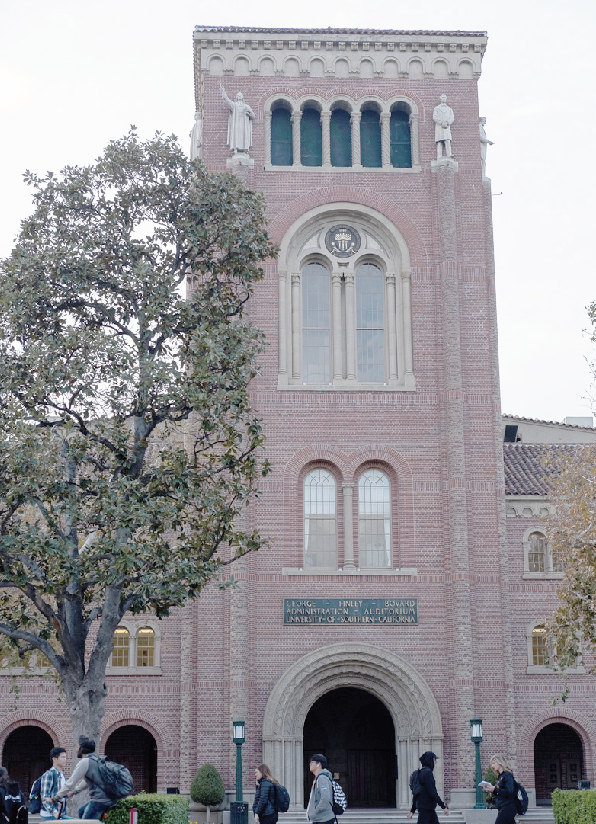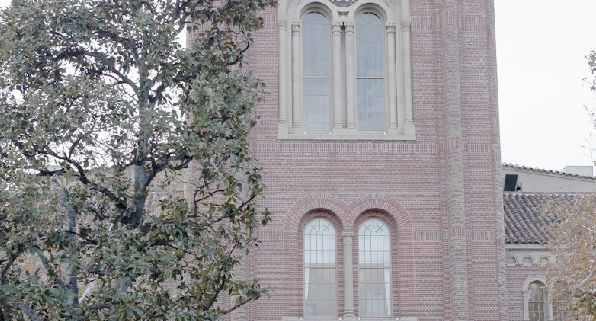Relationship policy concerns students, staff

Amid controversy surrounding another sexual harassment case at the Engemann Student Health Center, a current USC policy is alarming some students and staff. A policy from the University Faculty Handbook states that voluntary and consensual relationships between faculty and students are strongly discouraged but not strictly prohibited.
The policy acknowledges there is “an inherent power differential between faculty and students” and restricts relationships between a professor and a student who is actively in his or her class. However, according to the policy, a student can be romantically or sexually involved with a professor so long as their relationship falls within certain guidelines.
Academic Senate President Yaniv Bar-Cohen acknowledged that some believe it is difficult, if at all possible, for faculty-student relationships to be consensual.
“I know many argue that it’s not even possible to have a consensual relationship like this,” Bar-Cohen said. “If there’s a supervisory relationship, [students] have a lot of reasons to fear not being very friendly. Therefore the faculty member might view something as consensual or as a mutual interest when it might actually not be there, and I don’t think that we should even allow that possibility.”
The policy has raised questions among the USC community as to whether or not students can truly consent to a relationship with a teacher.
“A student would probably feel [pressured],” said Abraham Santana, a freshman majoring in mechanical engineering. “They might feel stuck in that relationship.”
The Faculty Handbook recommends the faculty member in question inform their administrators of their relationships. The Office of the Vice Provost declined to comment on whether any relationships have ever been reported to their office or what its protocol is when relationships or conflicts within relationships are reported.
Several universities have already employed policies that explicitly prohibit faculty-student relationships in the last five years, including Stanford University, MIT and Columbia University. The University of Michigan changed its policy last week due to university involvement in litigation.
Amad Ross, a freshman at Columbia University, commented on the impact of the ban on all faculty-student relationships at his school.
“There’s such a large power [difference] in most cases,” Ross said. “I think the risk is so high that even in cases where that relationship would be OK, it’s better to prohibit that relationship just because of the small number of cases in which a relationship would be detrimental to the student’s future.”
Bar-Cohen said that relationships between faculty and students present high risk.
“I’m not pretending [banning relationships] isn’t a sacrifice,” Bar-Cohen said. “Any time you take away someone’s right to do anything it’s a sacrifice. I just think for me, the risks versus benefits on this one is pretty easy. It’s a sacrifice worth making.”
USC has assembled a task force to prevent sexual harassment on campus. One of the goals of the Joint Provost/Academic Senate Task Force is to limit sexual coercion.
Although relationships between students and faculty are currently permitted, a spokesperson for the Office of the Vice Provost told the Daily Trojan that they are still heavily discouraged.
“The Academic Senate has also endorsed the position strongly discouraging sexual relationships and sexual advances between faculty and any students at all, even those not in the faculty member’s class,” the spokesperson said.
Some fear the lack of an explicit ban on sexual relationships between faculty and students counters the initiative created by the task force to reduce sexual coercion on campus.
“I think it’s pretty ridiculous that [this policy is] allowed,” said Lilit Yengoian, a freshman majoring in neuroscience. “I feel like it’s a threat to both academics and sexual harassment.”

